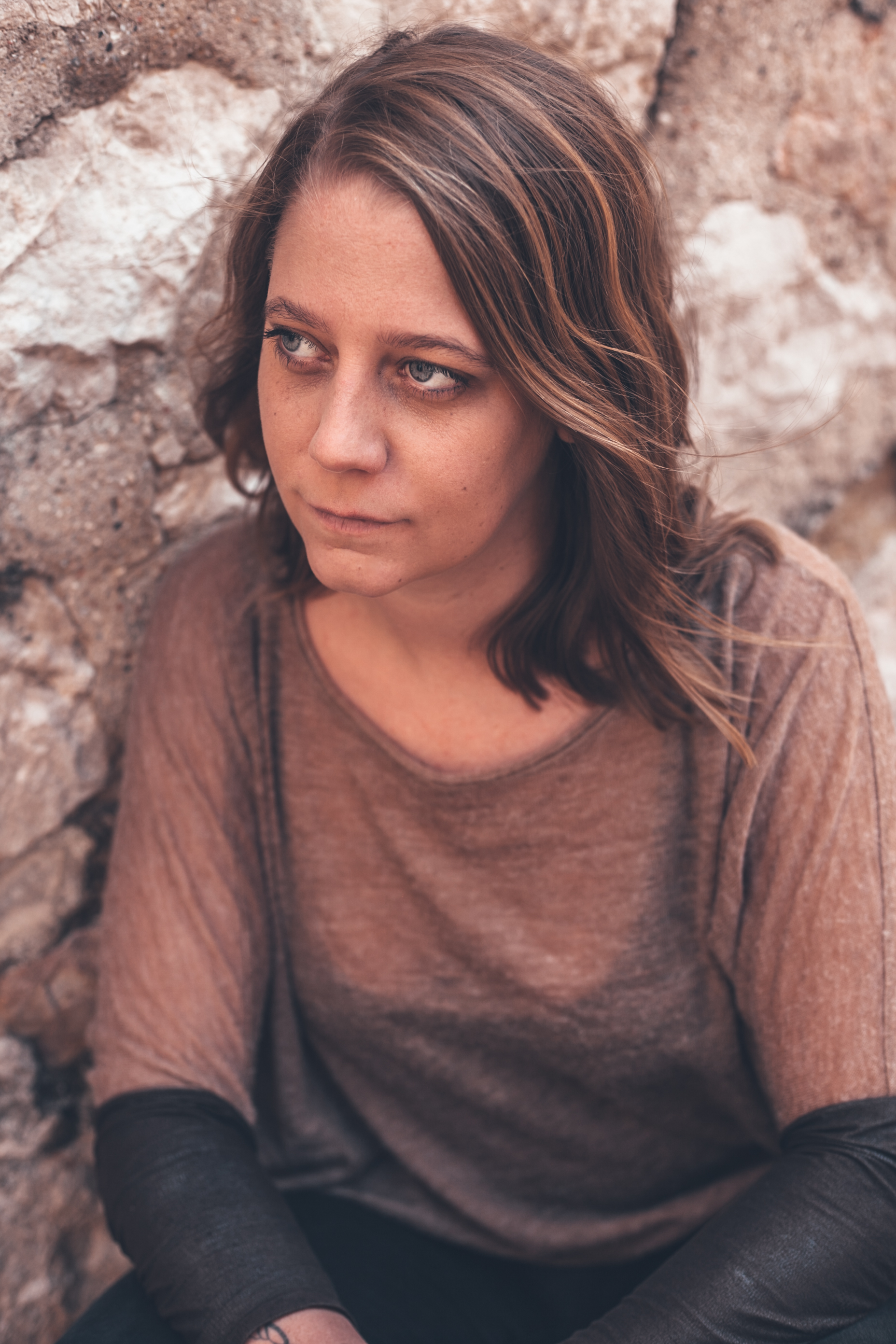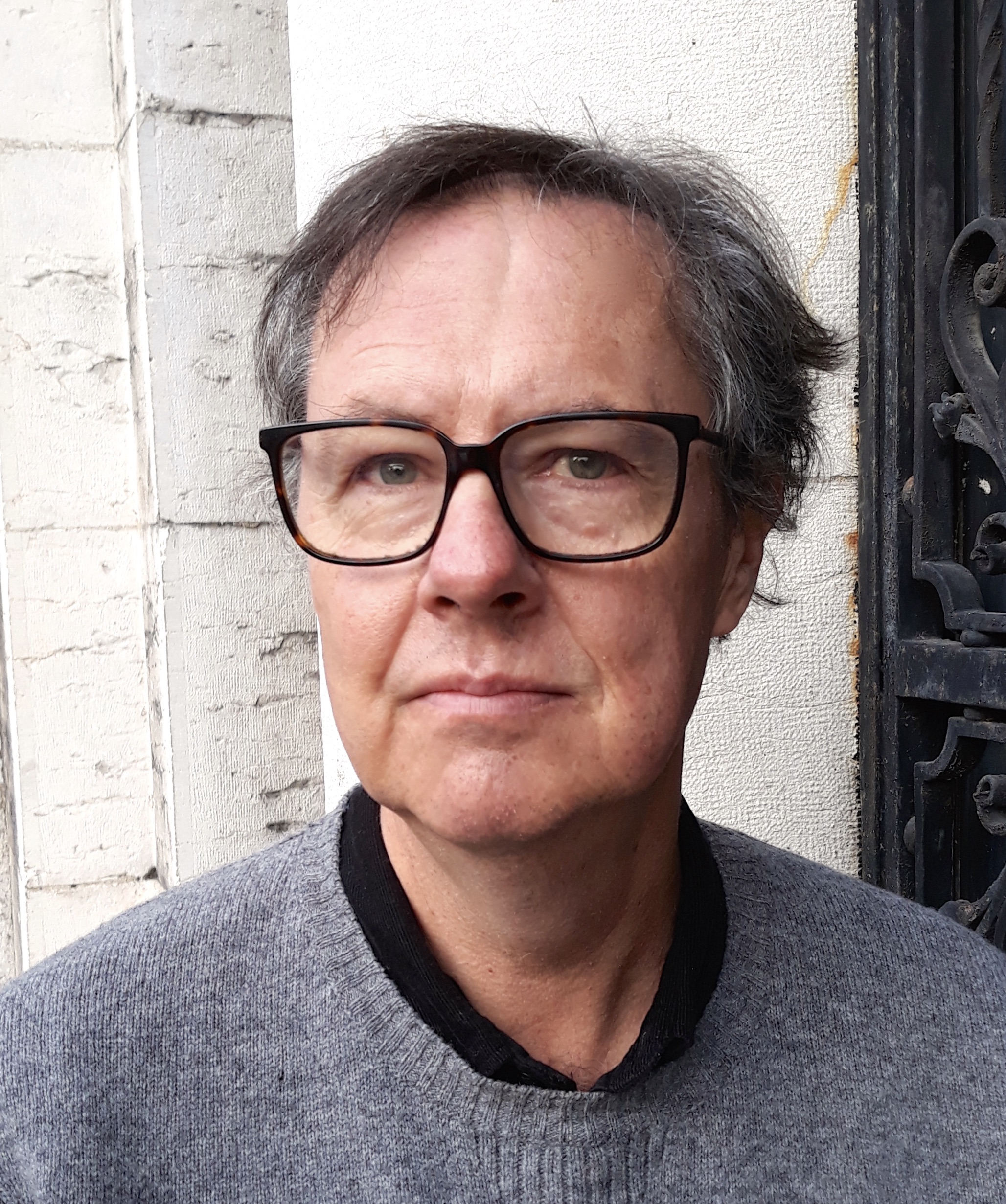
Poetic Prose from Dialyzing
That woman, having sunk into what, from now on, is no longer her: a desire will deliver her into the world, through her membranes. Her birth will always be an injunction, a bleeding. An oedema on the sea.
By way of illustration, this is how desire overwhelms her. It calls her Aurore.
*
Here she is, in her soul, at the edge of a cliff;
Facing the ocean, standing there, at the brink of the sky.
An in-between moment.
She erects a membrane there.
*
Draws from a great lung what she gives back inside the other one.
Draws from the condensation of the air what she gives back in waterfalls. Draws from the wind what suffocates her. Draws from the retained water what she transforms into great movements of freedom.
Potent dialysis.
*
Barely a breeze breaking—fissures her and fractures her.
Wrings her heart, gives her a push, makes her grow potent wings. Blows her out and sweeps her off,
vaguely.
In a moment the wind will push her off and gravity will unleash inside her the forces of flight. . .
*
But she asks to see: if matter has no bottom to it, against what irremediable abyss will she crash?
Does a body bursting in a chaos react by nuclear fission?
*
Facing infinities, she digs into verse. She digs into it, digs into it, extends its echo, she bores a well in it, then her grave.
And, incandescent, she gushes back inside it, tossing the poem over the edge.
*
At the edge of a cliff the breeze, subsided, resting, lays hold of her limbs. In her sternum, the day gulps down her skies and her black linen, sinks while little by little dispensing its lesson of luminance.
Noon rises.
It raises its pleurae and takes a deep breath inside her.
*
It’s not the bronchial tubes, but the air that wants to breathe, swell, ransack the lungs. It’s always a sky that wants to be invaginated.
Her pulmonary sheaths are clouds—bellows of storms, airlocks of vapors, alveoli of tempests.
Her mouth, the muscle in which the wind contracts.
*
The mountains heave themselves up and quiver in her toes; her feet unfold their leaflike pages, subjugate their summits—but legs are no wings, he said,
therefore, alive, she lapsed.
Living and lapsing: metabolizing gravity. For the earth is grave, as grave as a volcano’s voice that goes up in smoke.
*
By now in her, everything is so naturally decongested that one day she will have only this helium gravity, matter that is more ardent than words.
Only at that moment will it be possible to say, without lying, that she is there.
Until then, she occupies herself, thrashing time, making fumaroles of it.
*
At the edge of a cliff, potent dialysis, she fights over the infinite with the ocean. But they breathe at the same gill.
Their breath escapes, enters through a crack, dashes to lose itself in the volutes of her pleura-colored dress.
*
Something hails her, gasps her.
She is that danseuse rushing forward, spreading her arms, at ease, on the brink of blazing, losing her arms and becoming the blaze.
She starts out from there, her body in insurrection.
—from Sous dialyses (©Éditions L’Âge d’Homme, 2016)
Return to Journal
Charline Lambert was born in 1989 in Liège, Belgium. She is the author of four books of poetry: Chanvre et lierre (“Hemp and Ivy,” Éditions Le Taillis Pré, 2016), Sous dialyses (“Dialyzing,” Éditions L’Âge d’Homme, 2016), Désincarcération (“Decarceration,” Éditions L’Âge d’Homme, 2017), and Une salve (“A Salvo,” Éditions L’Âge d’Homme, 2020). She is currently finishing her Ph.D. thesis on the relation between poetry and deafness.
John Taylor’s most recent translations are, from the French, José-Flore Tappy’s Trás-os-Montes (The MadHat Press) and, from the Italian, Franca Mancinelli’s The Butterfly Cemetery: Selected Prose 2008-2021 (The Bitter Oleander Press)—of which the essay “Piazza XX Settembre” originally appeared in Word City. His most recent book of poems is Transizioni, a bilingual volume published in Italy by LYRIKS Editore and illustrated by the Greek artist Alekos Fassianos.

Charline Lambert’s photo by Sadie Von Paris
John Taylor’s photo by Françoise Daviet-Taylor
WordCity Literary Journal is provided free to readers from all around the world, and there is no cost to writers submitting their work. Substantial time and expertise goes into each issue, and if you would like to contribute to those efforts, and the costs associated with maintaining this site, we thank you for your support.
Make a one-time donation
Make a monthly donation
Make a yearly donation
Choose an amount
Or enter a custom amount
Your contribution is appreciated.
Your contribution is appreciated.
Your contribution is appreciated.
DonateDonate monthlyDonate yearly